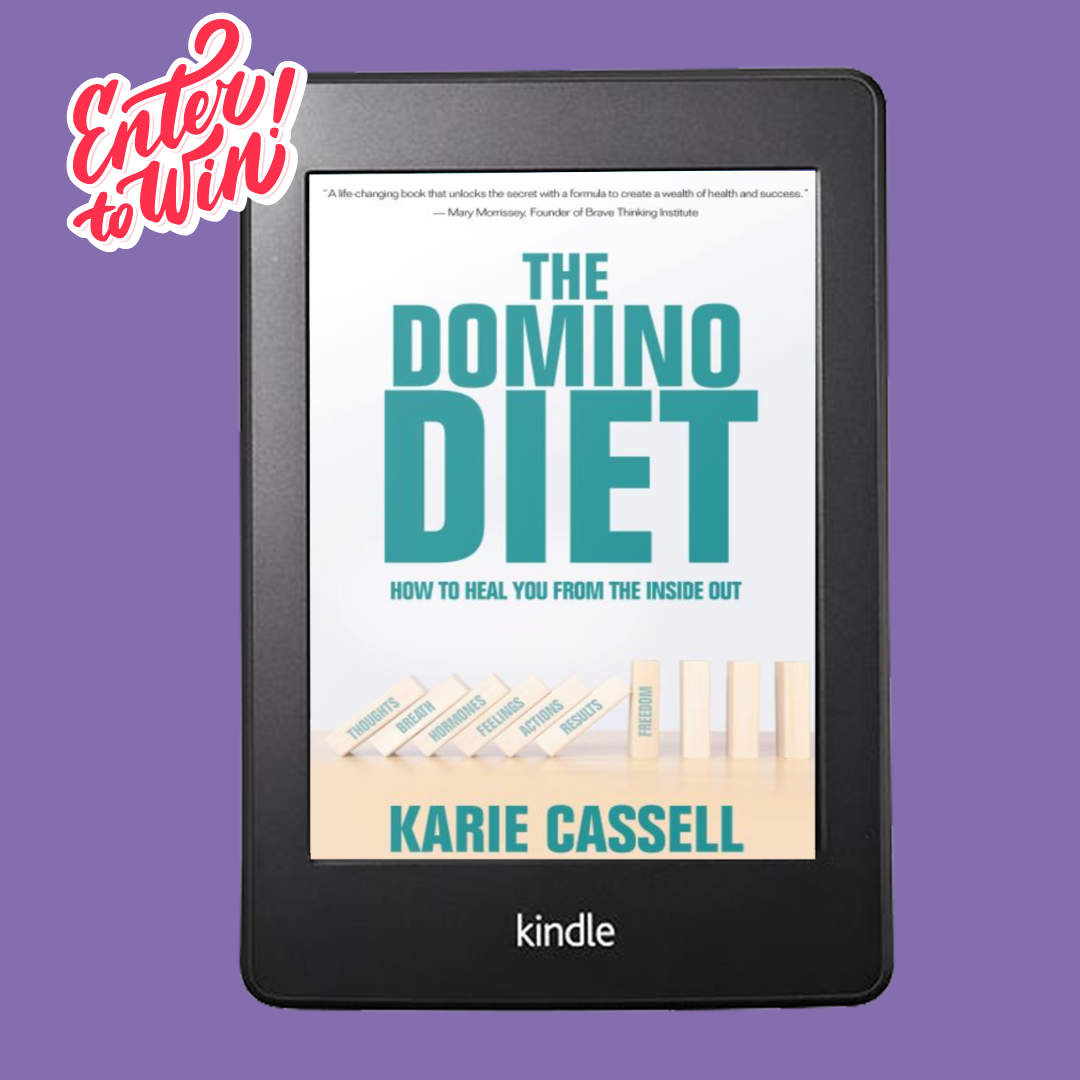Why What Worked in Yours 20s, Won't in Your 40s...
cortisol menopause menopuase stress weight gain younger vs older Oct 01, 2024
Why What Worked in Your 20s and 30s May Not Work in Your 40s and Beyond: Cortisol, Stress, and Weight Management
"In your 20s, it's all about how good you look in skinny jeans. In your 40s, it's about how fast you can get out of them and into sweatpants without pulling a muscle!"
As you move into your 40s and beyond, your body undergoes significant changes, especially in how it responds to stress and hormones. The methods you used to manage weight and stress in your 20s and 30s may not be as effective anymore, largely due to shifts in hormonal balance, including cortisol production. This can make weight management more challenging and increase your susceptibility to stress.
Hormonal Shifts in Your 40s and Beyond
In your 20s and 30s, your metabolism is typically faster, and your hormones—like estrogen and progesterone—are more balanced. These hormones regulate not only reproductive health but also how your body processes stress and stores fat. As you enter your 40s and approach perimenopause and menopause, estrogen levels decline, and the way your body handles stress—particularly cortisol—changes significantly.
-
Increased Sensitivity to Stress: With declining estrogen and progesterone levels, women in their 40s and beyond are more susceptible to stress. This can lead to chronically elevated cortisol levels, which has a more significant impact on fat storage, particularly around the midsection.
-
Slower Metabolism: Your metabolism naturally slows with age, meaning you burn fewer calories at rest. Combined with elevated cortisol, this can make it harder to lose weight, even if you maintain a healthy diet and exercise routine.
-
Insulin Resistance: Hormonal changes can also lead to insulin resistance, making it harder for your body to regulate blood sugar levels. This can contribute to weight gain and increase the risk of type 2 diabetes.
Cortisol and Weight Gain in Your 40s and Beyond
Cortisol, often referred to as the "stress hormone," plays a major role in how your body manages stress. In your 40s and beyond, your body's ability to regulate cortisol becomes less efficient due to hormonal shifts. Elevated cortisol can lead to increased fat storage, particularly around the abdomen, making it harder to maintain or lose weight.
- Cortisol and Belly Fat: Chronically high cortisol levels trigger your body to store fat, especially visceral fat, which is linked to heart disease, diabetes, and other metabolic issues.
- Muscle Loss: Elevated cortisol can also lead to muscle loss, further slowing your metabolism and making weight loss more challenging.
Why Traditional Weight Management Approaches May No Longer Work
-
Reduced Effectiveness of Calorie Restriction: In your 20s and 30s, cutting calories or following trendy diets might have helped shed a few pounds. However, in your 40s and beyond, severe calorie restriction can backfire. It can lead to muscle loss, slow metabolism, and further stress, raising cortisol levels.
-
Exercise Alone Won’t Cut It: High-intensity workouts or running miles each day may have kept you fit in your younger years. However, intense exercise in your 40s can elevate cortisol levels, leading to burnout and fat retention instead of weight loss.
-
Stress Management: In your 20s and 30s, stress might not have significantly impacted your weight or health, but in your 40s, managing stress becomes essential. Chronic stress and elevated cortisol levels can wreak havoc on your weight and overall well-being.
Tips for Managing Cortisol and Weight in Your 40s and Beyond
The key to effective weight management in your 40s and beyond is aligning your diet and lifestyle with your changing hormonal needs. Here are some tips to help reduce cortisol levels and manage weight more effectively:
-
Eat for Hormonal Balance:
- Focus on whole foods rich in fiber, healthy fats, and lean protein. Fiber helps regulate blood sugar levels, reducing the likelihood of insulin resistance.
- Include phytoestrogen-rich foods like flaxseeds, soy, and chickpeas to help support hormonal balance.
- Incorporate omega-3 fatty acids from sources like salmon, chia seeds, and walnuts to lower inflammation and cortisol.
- Avoid processed foods and excessive sugar, which can spike insulin and cortisol levels.
-
Eat Smaller, Balanced Meals Throughout the Day:
- Eating smaller, frequent meals can help stabilize blood sugar and prevent cortisol spikes. Focus on meals that combine complex carbohydrates with protein and healthy fats.
- Don’t skip meals, as this can lead to low blood sugar, triggering the release of cortisol.
-
Embrace Moderate, Low-Impact Exercise:
- Switch from high-intensity workouts to more moderate and low-impact activities like yoga, Pilates, swimming, and walking, which help manage stress without raising cortisol.
- Incorporate strength training to build muscle and maintain metabolism, which naturally declines with age.
-
Prioritize Rest and Recovery:
- Ensure you're getting 7-9 hours of sleep each night to support hormone regulation and cortisol balance.
- Practice stress-relief techniques such as meditation, deep breathing, and mindfulness, which help lower cortisol.
-
Manage Stress Proactively:
- Incorporate daily relaxation practices to keep stress levels in check. Even 10 minutes of deep breathing or meditation can significantly lower cortisol.
- Consider trying adaptogens like ashwagandha, rhodiola, and holy basil, which are natural herbs known to help the body adapt to stress and balance cortisol levels.
-
Avoid Excessive Caffeine and Alcohol:
- Both caffeine and alcohol can raise cortisol levels. Limiting your intake, especially in the afternoon and evening, can help keep cortisol in balance and improve sleep quality.
How Menopause Alters Cortisol Response
During menopause, hormonal fluctuations further amplify cortisol's impact on your body. Declining estrogen makes it harder to cope with stress, leading to prolonged cortisol elevation. This can also increase the risk of developing metabolic syndrome—a combination of conditions like high blood pressure, high blood sugar, and excess belly fat.
- Cortisol and Menopause Weight Gain: With estrogen's protective effects diminished, cortisol has a stronger impact, making weight gain around the belly more common.
- Sleep Disruptions: Hot flashes and night sweats can interrupt sleep, elevating cortisol further and exacerbating weight retention.
Key Takeaways
In your 40s and beyond, managing stress and cortisol levels becomes essential for maintaining a healthy weight. The methods that worked in your 20s and 30s, such as calorie-cutting and high-intensity exercise, may no longer be effective and could even backfire. By focusing on a balanced diet, moderate exercise, and stress-reduction techniques, you can better manage your hormones and achieve sustainable weight management.
For more nourishing blogs and recipes, connect with Karie!


Karie Cassell RD, LMC
Bestselling Author, Dietitian, Nutrition Coach
[email protected]
www.kariecassell.com
Ph. 780-814-2983
References:
-
Livaudais-Toman, J., Thompson, B., & Coronado, G. (2015). "Effects of menopause and stress on body fat distribution and metabolic risk." Menopause Review, 14(4), 324-330.
-
Epel, E. S., McEwen, B. S., & Seeman, T. E. (2000). "Stress and aging: The interplay of cortisol, stress, and metabolic health in women over 40." Journal of Clinical Endocrinology and Metabolism, 85(11), 3745-3751.
-
Pinkerton, J. V., & Santoro, N. (2020). "Menopause and midlife women’s health: Adapting to the natural hormonal shifts." The Lancet, 395(10242), 1024-1034.
Customize Your Nutrition Tips & A Chance to Win my Book!
Check the boxes that apply to your request and you'll be entered into monthly Book Giveaway!
Don't worry, your information will not be shared.
We hate SPAM. We will never sell your information, for any reason.
Categories
All Categories 100-300 calorie snacks active active after meals adult snacks adutls alcohol alcohol sugars andropause anti inflammatory antioxidant anxiety baking healthy balanced nutrition balanced sugars beauty benefits bento box beverages beyond diets biotin blood sugar management blood sugars burnouot cacao caffeine caffeinne calcium calories cancer carbohydrates causes and treatments chia chocolate cholesterol christmas cleanse cold collagen compare calories complete protein cooking meals cortisol coumadin cramps craving connection dairy free dehydration desserts detox diabetes diet dietician dietitian diets digest don't like cooking during activity easy and tasty easy meal ideas eating for one eating out electrolytes end food war enzymes excercise fat fiber fight flight flexitarian flu fruits and vegetables aka veggies frustration fuel fuel performance and weight goal general healthy glucose load gluten free glycemic index goals growth habits hair harvest salads headaches healing health coach health professional health wellness healthy healthy chocolate healthy dishes healthy drink healthy holiday meal ideas healthy holidays healthy ice cream substitute healthy lunch healthy prepared meals healthy size healthy snacks healthy vegetables dishes heart heart health heart heatlh herbs hormones hot flash hot flashes how much protein hydration hypoglycemia immune boost immune health inflamation inflammation insomnia intervals iron iron absorption kid snacks kids kids in sports kids smoothie lab values label reading lean mass leg cramps less than 500 life coach lifestyle long-term low calorie low calorie buffet low calorie chritmas low fat low gi low sodium low sugar lower calorie turkey dinner lower sugar lunch macronutrients magnesium magnesium foods magnesium supplement maintain make-ahead healthy meal compare meal plan meal planning meals men's health menopause menopuase mental health menu metabolism micronutrients milk milk substitutes mind body spirit minerals mocktails monk fruit more energy morning workout movement muscle aches muscle cramps muscles nails new year's resolutions nightshades nut free nutrition reset nutritionist nutritious meal pcos picky eater plant-based polycystic ovarian portion potassium pre workout prediabetes prepare ahead produce prostate protein raw fruit raw vegetables recipe recipes recovery nutrition reset rest digest create restless legs sabotage saw palmentto serotonin shape skin sleep sleep snacks smoothie smoothie recipe snack meals sodium sports sports drink sports nutrition step converter stevia storing stress sugar sugar substitute sugars summer sunshine supersize supplements tension thanksgiving timing of meals tired too much protein trends turmeric ultra-processed under 500 calories vacation health vegan healthy vegan holiday vegan recipes vegetables vitamin vitamin d vitamin k vitamins warfarin weight weight gain weight goal weight loss younger vs older zincStay connected with Nourishing News & updates!

Click the Button and customize your Nutrition Tips and You will be entered for my monthly Book Giveaway!
For Nourish to Flourish healthy tips and recipes, contact Karie!

Bestselling Author
Phone: 780-814-2983
[email protected]
www.kariecassell.com
Click here to discover THE DOMINO DIET
Recent Posts


